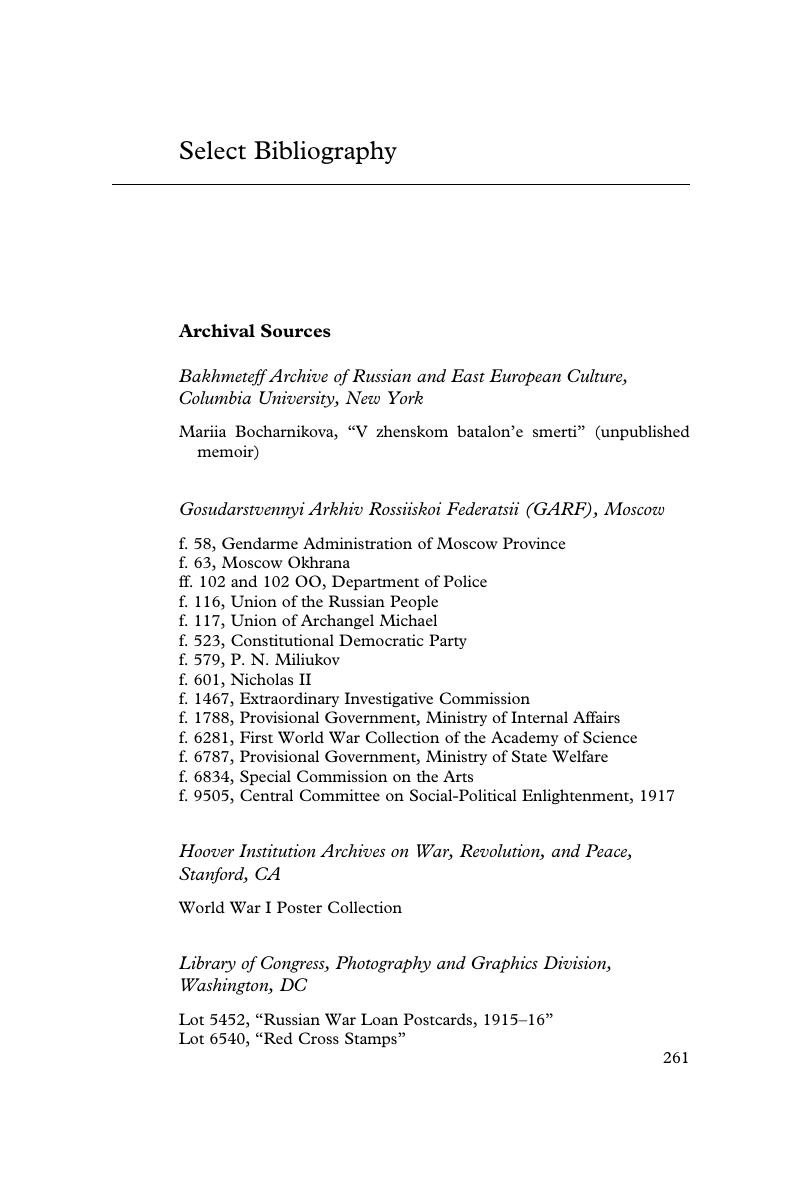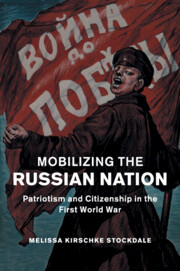Book contents
- Mobilizing the Russian Nation
- Studies in the Social and Cultural History of Modern Warfare
- Mobilizing the Russian Nation: Patriotism and Citizenship in the First World War
- Copyright page
- Contents
- Figures
- Book part
- Note on Usage and Translation
- Chronology
- Introduction Mobilizing a Nation
- 1 A Sacred Union
- 2 National Mobilization
- 3 “On the Altar of the Fatherland”
- 4 “All for the War!”
- 5 United in Gratitude
- 6 Fantasies of Treason
- 7 “For Freedom and the Fatherland”
- Conclusion
- Select Bibliography
- Index
- References
Select Bibliography
Published online by Cambridge University Press: 25 November 2016
- Mobilizing the Russian Nation
- Studies in the Social and Cultural History of Modern Warfare
- Mobilizing the Russian Nation: Patriotism and Citizenship in the First World War
- Copyright page
- Contents
- Figures
- Book part
- Note on Usage and Translation
- Chronology
- Introduction Mobilizing a Nation
- 1 A Sacred Union
- 2 National Mobilization
- 3 “On the Altar of the Fatherland”
- 4 “All for the War!”
- 5 United in Gratitude
- 6 Fantasies of Treason
- 7 “For Freedom and the Fatherland”
- Conclusion
- Select Bibliography
- Index
- References
Summary

- Type
- Chapter
- Information
- Mobilizing the Russian NationPatriotism and Citizenship in the First World War, pp. 261 - 276Publisher: Cambridge University PressPrint publication year: 2016

